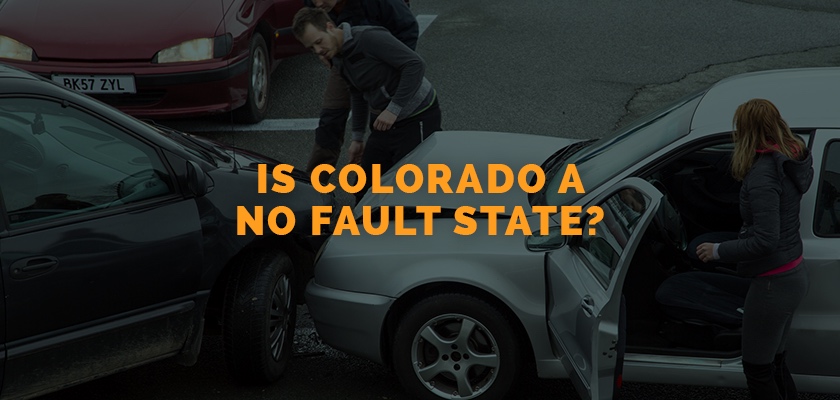After getting into a car accident in Colorado, one of the first actions you should take is to collect the other driver’s insurance information. Car insurance is vital to filing a claim for any damages sustained in an accident.
Colorado requires all drivers to have a minimum amount of coverage to drive in the state – but when it comes to collecting compensation for damages, you may be unsure of whose company is responsible for payment.
Do you file a claim with your insurance company (also known as a no-fault system) or a claim with the at-fault driver’s insurance company (known as a fault system)? Colorado is not a no-fault state; you must follow the fault system when you get into an accident in the state.

The fault-based system is the more traditional of the two options for filing insurance claims. The person who was at fault for the accident must pay the damages you suffered. The driver will not pay for these costs out of pocket. His or her insurance company will cover these costs up to their policy limits.
If you suffer injuries in a Colorado car accident, you have three main pathways toward compensation for your losses.
You can collect compensation for losses such as medical expenses, property damages, lost wages, pain and suffering, and more, depending on the route you decide to take. Consult with a Denver personal injury attorney to determine which course of action makes sense for your situation.
Under Colorado state law, every motor vehicle operator must have a certain amount of liability car insurance. The minimum amounts for car insurance coverage in Colorado are as follows.
Usually, these basic insurance coverage pays for medical expenses, property and vehicle damage, and any other damages people injured in the accident suffer. People who could receive this compensation include other drivers, passengers, and pedestrians. If the at-fault driver only has the minimum amount of coverage, he or she may have to pay for additional damages that exceed the policy limits.
You can also purchase a higher amount of coverage to protect against these excess costs in the event that you cause the accident. You can also purchase coverage to protect yourself against liabilities not covered under your current insurance plan, such as collision coverage to pay for your own injuries and damages if you cause a car accident.
Sometimes, you can get into an accident with a driver who does not have insurance or does not have enough insurance to cover your damages. To cover these situations, it may be beneficial to purchase additional coverage from your insurance company. All providers in Colorado must offer underinsured or uninsured motorist coverage, which can provide compensation for you if the at-fault driver does not have insurance.
If the at-fault driver only has the minimum coverage or you suffer severe injuries in the accident, you may exceed the company’s policy limits. In these cases, you may be able to file a personal injury lawsuit instead of an insurance claim. Contact a Denver car accident attorney to discuss which option would work best for you.